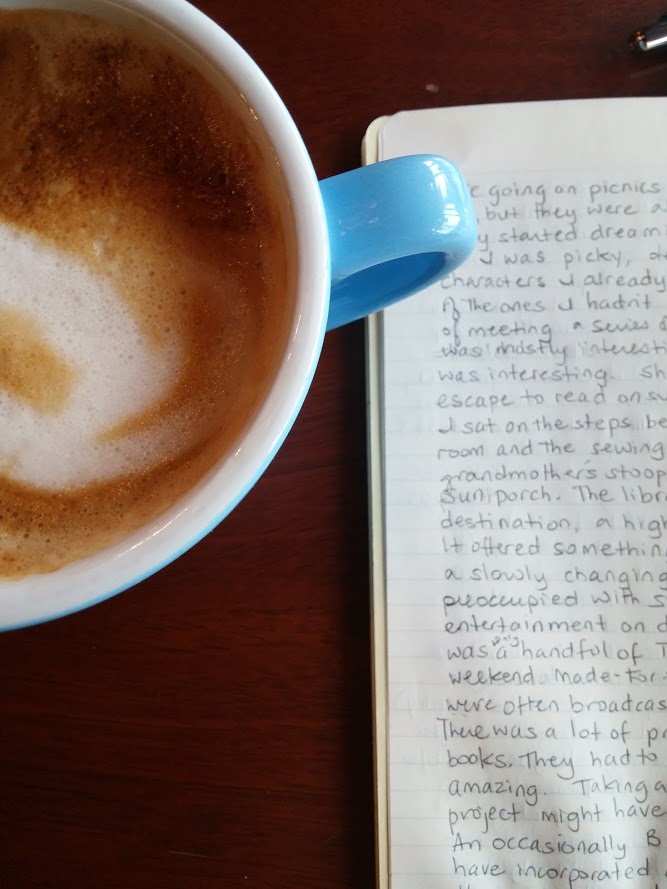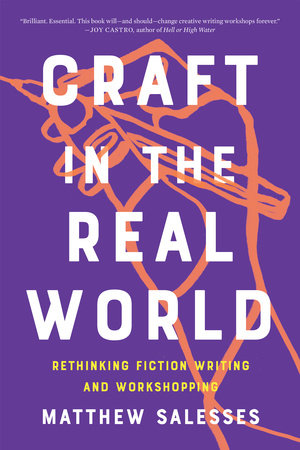Clearly stating his intention from the start, Matthew Salesses’s Craft in the Real World is an invitation to discuss the foundational ideas and practices that define writers and their work.
“This book is intended to begin further conversation—it should never be taken as an exhaustive or definitive resource,” he says. And, because “craft is in fact nothing more or less than a set of expectations”, that conversation may range widely.
[And, speaking of conversations, I’d heard about this book, but it wasn’t until I saw Rebecca Upjohn‘s recommendation, her describing how it had impacted her thinking and reading, that I decided to purchase a copy myself.]
Up for discussion are not only the stories that have been analysed, lauded and celebrated, but also the stories that have been neglected, misunderstood, and overlooked:
“Craft is the history of which kind of stories have typically held power—and for whom—so it also is the history of which stories have typically been omitted.”
He references other writers and thinkers who value and prioritise difference and views himself as part of a community that aims to broaden the understanding of stories told as well as the power dynamics simmering beneath the decisions at work in their telling, in their reception, and in their proliferation.
Like many others, he quotes Audre Lorde: “There are no new ideas. There are only new ways of making them felt, of examining what our ideas really mean.” Because I’ve been rereading Lorde’s essays of late, and had recently finished Alexis De Veaux’s biography of her, I felt like I was contributing to this discussion. But with his reference to Toward the Decolonization of African Literature (Chinweizu et al.) and the four conventions identified therein about the tradition of incorporating the fantastic into everyday life, I felt like a student, reaching into my reading experience to locate stories that fit with these conventions.
(Curious what they are? First, the spirit beings have a non-human trait that gives them away—like floating—and second, a human’s visit to the spiritland involves a dangerous border-crossing, and third, spirits not only have agency but can possess humans and, finally, spirits aren’t subject to human concepts of space/time. If I had understood this when I read Ben Okri’s The Famished Road after it won the Booker Prize, I wouldn’t have had quite so many questions!)
In imagining myself in conversation with these essays, there were times where I disagreed, but although he presents his ideas with certainty and authority, there is something about his tone which suggests that he might enjoy the process of broadening the conversation to include disagreement. Having read Ursula K. Le Guin’s essays about writing the Earthsea stories for instance (not only the original trilogy, but the volumes and stories that followed), I believe her intentions are slightly different than he understood them to be, in the context of their original publication, and I think that would be a rewarding conversation to explore, particularly in the context of how some of the later stories differ from the early ones. I don’t think this is the kind of discussion that has a resolution…the merit is in having the discussion.
Despite the volume’s compactness, Salesses is committed to nuance. Despite his spare prose, he’s prepared to get gritty. (“Diversity,” he writes, for examples, “in the parlance of our times, should not be tokenism.” Not everyone is prepared to acknowledge a distinction.)
He’s also prepared to admit that needing to have certain conversations doesn’t mean that we are prepared to do so. He writes: “It’s impossible to trace an entire tradition, including its experiments, in a single essay—this is the point. Writers must read much more widely and much more deeply, if we are to know enough craft to start to critique other writers fairly and to write truly for ourselves.”
There are plenty of references for readers who are just beginning to explore literature, just beginning to broaden their understanding of it, but Salesses admits that the work required to change conventional understanding of craft resides outside the scope of any single book, including his own.
One of my favourite passages in the books is this: “I believe in workshop as a shared act of imagination, in the ability of many minds to foster the growth of one by one by one through conversation. I believe in the vulnerability of process and the process of vulnerability.”
At first, maybe it sounds like all the most commercial parts of workshop culture, heavy on trendy words and light on meaning but, on closer examination there’s a profound idea there that I’ve longed to articulate myself. It’s harder to be vulnerable by engaging in a process these days, to reflect on it and adjust as necessary, than it is to adopt a position of certainty (or conform to someone else’s) and defend it loudly.
There’s a lot of theoretical material here, but Salesses gets practical too. I’m particularly fond of this bit of advice to writers who are evaluating another writer’s work: “Be specific and precise, and ask questions you don’t know how to answer, and give suggestions that come from reading the story for what the author wants it to be, not what you want it to be.” (He’s speaking about the workshop environment, but the underlying concept is also valid for reviewers.)
His “Syllabus Example” is the first piece I’ve read that made me feel a little less crazy for writing so many notes about my own writing as a means of exploring intentions and results (sometimes a word count that competes with the length of the work itself!). I photocopied three of his 34 Revision Exercises and filed them with a simmering WIP. And I flagged “A List of Craft Questions to Take into Consideration” because it looks useful. (He presents these pieces as beginnings, a foundation for further development.)
A fine resource for writers.
Matthew Salesses. Craft in the Real World: Rethinking Fiction Writing and Workshopping. NY: Catapult, 2021.


In an ideal world I would race out and get a copy of Craft in the Real World, but for the time being I will make do with your excellent review.
I am writing on post on African Lit tonight so you will see yourself quoted therein (on Friday)
You might remember I recently reviewed a collection, edited by African-Australian author Eugen Bacon – Languages of Water – in which ten or 12 writers from various countries workshopped a story of hers about water and drought in a striking “shared act of imagination”.
Unless one is dedicated to spending hours every day with writing, I’m not certain it would be consistently interesting or helpful, but you do spend time contemplating different ways of discussing and relating to books and stories, in your own writing and in regard to your editorial work, and also you are planning to seek out specific African storytellers in 2024, so I think you would find Salesses’s book more useful than, say, Helen Humphreys’s book.
Ohhh, I had missed that (it’s when I was offline) but what an amazing idea and work. Here’s the link.